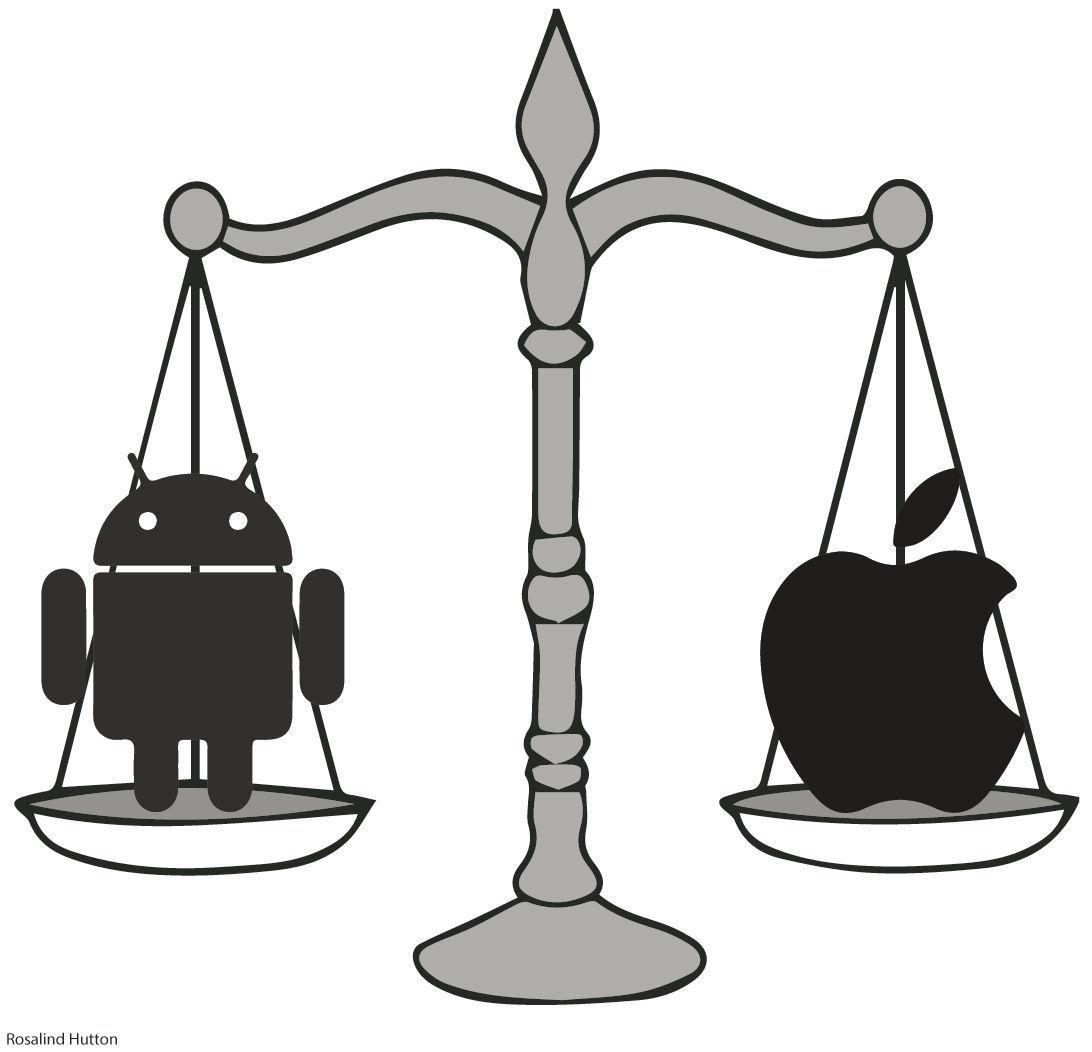I hate the endless feuds between Apple users and everyone else. As a Business Information Systems student, I have seen the “Mac vs. PC” debate for ages. I am tired of it, but I refuse to bring previous frustrations into this argument. The subject of this article is to look at mobile operating systems, not Apple-branded products or the cult-like appreciation of Apple’s successful brand. Although their non-mobile products play a part in this debate, my goal is to approach this rationally.
If you use an Apple product, I am not going to make you fall out of love with it. I plan to give you numbers and share my anecdotes. All I want to do is show you the mindset of an Android user, not put smudges on the glossy aesthetic you associate with Apple.
Pew Research Center found 81% of all U.S. citizens owned a smartphone in 2019. According to StatCounter, 57% of those 265 million mobile users have Apple cellphones that run iOS. Remaining smartphone users in the U.S. mostly go with Android, the alternative operating system. I am one of those users, and I have been since 2014.
Ironically, my first smartphone was an iPhone 3G. I was 13, and it was the same brand my older sister used. It was also an iPod, capable of playing videos and music which was an important factor for me. I was entertained for a bit, but I was not a fan of their locked architecture. I was not allowed to change a lot about the phone because iPhones only allow importing or exporting media. That media was also subject to the ludicrously expensive whims of iTunes, and I was a broke teenager. It took me less than a month to figure out how to jailbreak it.
For those who are unaware, jailbreaking allows for the installation of homebrew applications Apple does not allow on their pristine platform. I installed emulators, changed the startup screen, customized the dock to be infinite along with various other tweaks. After customizing my phone, it stopped being a locked system and started to be an expression of my personality. It took a few years before I realized an Android phone would let me do this out of the box, without the endless workarounds and compromises. My iPhone never broke, but I needed an upgrade going into my senior year of high school, so I chose an Android. I went with a Samsung Galaxy S4 and never looked back. I have used an Android ever since and only upgraded once since then.
Apple users love accessibility and simplicity. They enjoy a glossy, responsive aesthetic and care about the quality of the camera. They consider themselves creative, unique and want a phone that matches their personality. I am not bashing Apple users. In fact, if you reread that statement for Android users, you reach the same conclusion: We all want a phone which works for us and achieves more than it did two decades ago.
I do not hate Apple’s software. On the contrary, their ease of use and creative features are superior to Androids in several areas. My problem is with the company and their unwavering brand loyalty. You should not be paying nearly $1,000 for a locked phone with sub-par ram. You should have expandable memory, a standard headphone port that works while it is charging and other features Androids have had for decades. I would love it if more Apple users detached themselves from the brand loyalty for a second and realized how much they are being ripped off. I am exhausted by how accepting Apple users are with their products that come with a premium price tag. Start making more demands out of what you are paying for. The endless lines for yearly upgrades that are only marginally better hold us back from progress.
StatCounter also measures worldwide use, and iOS is only 25% of the phone user population with the remainder of the world using Android. The reason for this is simple economics. Multiple companies manufacture competing Androids compared to Apple’s singular source. There is also the luxury price point of iPhones that privileged Americans forget about. Androids are cheaper, have better hardware specs because of competition and are more accessible to foreign entities. Boiling it down, Android is an open-source system akin to Linux, whereas iOS is a shiny closed system you have to pay too much for.
Android phones offer customizability and personalization
About the Contributor

Brandon Grisham, Former Online Editor
Brandon Grisham served as the Online Editor from 2019 to 2020.
He also started The Reflector's digital archive, dubbed the "Grisham Archive Project."
Donate to The Reflector
Your donation will support the student journalists of Mississippi State University. Your contribution will allow us to purchase equipment and cover our annual website hosting costs.






















































































